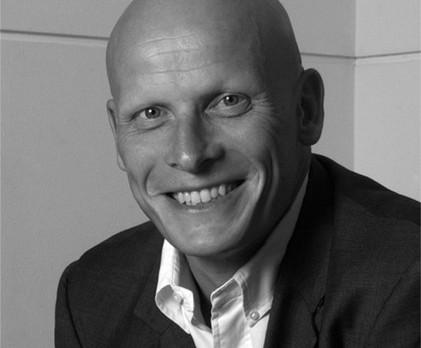Accenture Development Partnership
BY FIGEN GUNES
Intrapreneurship is such a new phenomenon even typing it involves a challenge as at every attempt Microsoft Word autocorrects the writer and suggests “entrepreneur” instead.
It’s not the only challenging thing about this unusual role. It’s not a job that anybody applies for it. It’s more of a mindset and an approach to social problems. It takes a degree of chutzpah bordering on the disruptive in large global organisations. But the good news is that intrapreneurs – people who create dynamic social solutions from within big companies – are on the increase.
“Changemakers within large organisations create a quiet revolution,” says Gib Bulloch (pictured above), founder and executive director at Accenture Development Partnerships (ADP). “They don’t wait for the chief executive to step forward – as corporate immune systems maintain profit rather than invest in innovation – revolutionary changes in large organisations should be started by the people who are closely engaged in communities.”
Mindset of staff in profit-oriented private sector is hoped to change as global business school INSEAD in France and Cranfield University in the UK will soon be placing intrapreneurship lessons in their MBA programmes.
Taking higher education in intrapreneurship as a positive initiative, he says due to a lack of business and technology expertise in developing areas, they set up ADP a decade ago to bring world-wide business consultancy firm Accenture’s services within the reach of NGOs and partners in developing countries. “I was a normal employee until late 1990s then we started the ADP to help bring answers to social problems,” Bullock emphasises.
Accenture staff face the tricky task of working in both the corporate environment and maintaining their job there as well as taking a salary reduction if they are working on a project for ADP, which is not-for-profit but also not-for-loss. Clients pay for services, says Bulloch, as the old charitable model of giving is not sustainable. International charities use ADP’s services before they set up branches abroad.
ADP has been instrumental in setting up The League of Intrapreneurs earlier this year in collaboration with Ashoka, the global network of social entrepreneurs, to highlight the growing impact of people creating change. Several socially conscious members of the network used ADP’s services to support social change across the globe.
One great example of this is Simon Berry who wanted to leverage widespread Coca Cola distribution network in Africa to deliver basic health kits to prevent simple illnesses by embedding medicines into crates.
ColaLife registered as an independent UK charity in 2011 and began a pilot program in Zambia to deliver AidPod; a wedge-shaped container that fits between the necks of bottles in a Coca-Cola crate. They are using the AidPods to distribute an anti-diarrhoea kit, called “Kit Yamoyo” (“Kit of Life”).
Coca Cola can be bought virtually anywhere in developing countries but in some of these same places 1 in 9 children die before their fifth birthday from simple preventable causes such as dehydration from diarrhoea.
Hopes are high for private sector to embrace more and more social projects as Gib put it: “The entire development sector is becoming more focussed on driving outcomes as opposed simply to raising incomes, the latter a more common barometer of success among not-for profits. The upshot of convergence could be that we end up moving to more of a marketplace for development outcomes, with a greater role for the private sector in the delivery of public goods.”















Write Your Comment